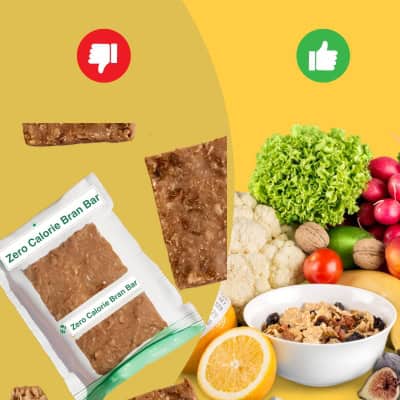Last Updated on May 18, 2023 by Our Editors
Introducing meat into a baby’s diet plays a vital role in providing essential nutrients necessary for optimal growth and development. Meat is rich in a variety of nutrients, including protein, iron, zinc, and vitamins, which are crucial for supporting a baby’s overall health, brain development, and immune function. In this article, we will explore the nutritional value of meat for babies and highlight the importance of these nutrients in their diet. Additionally, we will mention Serenity Kids, a reputable brand that offers meat-based baby food options.

Protein: Building Blocks for Growth and Development
1. Importance of Protein for Babies
Protein is an essential nutrient that serves as the building blocks for tissues, muscles, enzymes, and hormones. It is crucial for the growth and development of a baby’s body. Protein supports the formation of new cells and helps repair damaged tissues. Additionally, protein plays a vital role in supporting the immune system, as antibodies and immune cells are made up of proteins.
2. Protein in Meat
Meat is an excellent source of high-quality protein for babies. Poultry, such as chicken and turkey, as well as beef and pork, contain all the essential amino acids necessary for optimal growth and development. These amino acids are building blocks for proteins in the body, and consuming meat ensures that babies receive a diverse range of amino acids to support their protein needs.
In addition to providing the necessary amino acids, meat-based proteins are also more easily digested and absorbed by the body compared to plant-based proteins. This is particularly important for babies, whose digestive systems are still developing. The readily available protein in meat helps support their growth and development.
Furthermore, the protein found in meat is rich in essential nutrients such as B vitamins, zinc, and iron. These nutrients work synergistically with protein to support various functions in the body. For example, B vitamins are necessary for energy metabolism and nervous system function, while zinc and iron contribute to immune function, brain development, and oxygen transport.
Iron: Vital for Brain Development and Oxygen Transport
1. Iron’s Role in Baby’s Health
Iron is a vital nutrient for babies as it supports the development of their brain and nervous system. It plays a crucial role in the production of hemoglobin, a protein responsible for transporting oxygen throughout the body. Iron also supports cognitive development and helps prevent iron-deficiency anemia, a common condition in infants.
2. Iron Content in Meat
Meat, particularly red meats like beef and lamb, is an excellent source of iron. These meats provide a highly absorbable form of iron known as heme iron. Heme iron is more easily absorbed by the body compared to non-heme iron found in plant-based foods. Including meat in a baby’s diet helps ensure an adequate intake of iron, supporting their overall health and development.
Iron is especially important for babies as they undergo rapid growth and have an increased demand for red blood cell production. Iron deficiency in infants can lead to anemia, which can negatively affect their cognitive development and immune function. Therefore, incorporating iron-rich foods like meat into their diet is crucial.
Zinc: Essential for Growth and Immune Function
1. The Importance of Zinc
Zinc is a vital mineral for babies as it supports healthy growth, immune function, and the development of the nervous system. It plays a role in enzyme function, protein synthesis, and DNA synthesis. Zinc is particularly important during periods of rapid growth, such as infancy and early childhood.
2. Zinc in Meat
Meat, including red meats and poultry, is a significant source of zinc. Zinc from animal-based foods is more readily absorbed by the body compared to zinc from plant-based sources. Adequate zinc intake supports the baby’s immune system, growth, and overall well-being. Zinc is particularly important for proper immune function, as it helps in the development and activation of immune cells, ensuring that babies can fight off infections and diseases effectively.
Zinc deficiency can impair growth, delay wound healing, and compromise immune function. Including meat in a baby’s diet helps ensure an adequate intake of zinc, promoting their healthy growth and immune system development.
Vitamins: Supporting Overall Health and Development
1. Vitamin B12
Vitamin B12 is crucial for a baby’s brain development, nervous system function, and the formation of red blood cells. It is primarily found in animal-based foods, including meat. Adequate vitamin B12 intake is vital for preventing deficiencies that can affect a baby’s growth and development.
2. Other Essential Vitamins
In addition to vitamin B12, meat provides other essential vitamins necessary for a baby’s overall health and development. Let’s explore these vitamins in more detail:
Vitamin A
Meat, especially organ meats like liver, is a rich source of vitamin A. This vitamin is essential for healthy vision, as it supports the development and maintenance of the eyes. Vitamin A also plays a crucial role in supporting immune function, promoting healthy skin and mucous membranes, and aiding in growth and development. By including meat in a baby’s diet, parents can ensure an adequate intake of vitamin A, supporting their little one’s vision and immune health.
Vitamin D
Meat, particularly fatty fish like salmon and mackerel, is a natural source of vitamin D. This vitamin is important for bone health as it aids in calcium absorption and helps regulate the levels of calcium and phosphorus in the body. Vitamin D is also involved in supporting the immune system and plays a role in cell growth and differentiation. Including meat in a baby’s diet, along with appropriate sunlight exposure, can help meet their vitamin D needs.
Vitamin E
While meat contains relatively small amounts of vitamin E compared to plant-based sources like nuts and seeds, it still contributes to the overall vitamin E intake. Vitamin E is an antioxidant that helps protect cells from damage caused by harmful molecules called free radicals. It also supports immune function and plays a role in the formation of red blood cells. While meat is not a primary source of vitamin E, its inclusion in a varied and balanced diet can contribute to the overall vitamin E intake for babies.
By including meat in a baby’s diet, parents can provide a range of essential vitamins, including vitamin A, vitamin D, and vitamin E, which collectively support various aspects of growth, development, immune function, and overall well-being.
Remember that introducing meat to a baby’s diet should be done gradually and in consultation with a pediatrician. They can provide guidance on appropriate portion sizes, cooking methods, and timing based on the baby’s age, readiness, and individual needs.
Nourishing Meat-Based Baby Food
Serenity Kids is a trusted brand that offers meat-based baby food options. They prioritize the use of high-quality, ethically sourced meats and organic ingredients to provide nutrient-dense baby food options for little ones.
Serenity Kids understands the importance of providing babies with nutrient-dense meals. Their meat-based baby food recipes are thoughtfully crafted to include a balance of protein, iron, zinc, and vitamins. By using high-quality meats and organic ingredients, Serenity Kids ensures that babies receive the essential nutrients found in meat to support their growth and development.
Serenity Kids’ meat-based baby food options are carefully prepared to meet the unique needs of babies at different stages of their eating journey. From simple purees to more textured options, their products are designed to introduce babies to a variety of flavors and textures while providing the essential nutrients found in meat.
Moreover, Serenity Kids prioritizes ethical sourcing practices, ensuring that the meats used in their products come from humanely raised animals. This commitment to quality and sustainability further enhances the nutritional value of their baby food options.
Conclusion
Meat is a valuable source of essential nutrients for babies, including protein, iron, zinc, and vitamins. These nutrients play crucial roles in supporting overall health, brain development, and immune function. Introducing meat into a baby’s diet, either through homemade preparations or trusted brands like Serenity Kids, ensures that they receive these essential nutrients. The meat-based baby food options provide a convenient and reliable way to incorporate meat into a baby’s diet. With their commitment to high-quality ingredients and nutrient-dense recipes, parents can feel confident that their little ones are receiving the necessary nutrients for optimal growth and development.
As always, it is important to consult with a pediatrician or a registered dietitian for personalized guidance on introducing meat and other foods to your baby’s diet, considering their specific nutritional needs and any potential allergies or sensitivities.













